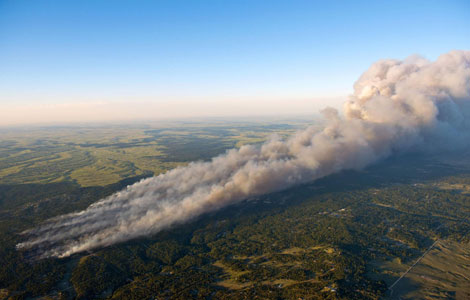
ALMATY - World powers and Iran failed again to end the deadlock in a decade-old dispute over Tehran's nuclear program in talks that ended in Kazakhstan on Saturday, prolonging a standoff that could yet spiral into a new Middle East war.
No new talks were scheduled but big power negotiators, who earlier this year were insisting that time was running out, were at pains to say the diplomatic process would continue.
Iran's critics accuse it of covertly seeking the means to produce nuclear bombs. Israel, widely believed to have the Middle East's only nuclear arsenal, sees Iran's nuclear program as a potential threat to its existence.
With a presidential election due in Iran in June, scope for a breakthrough at the two-day meeting in Almaty was slim.
European Union foreign policy chief Catherine Ashton, the powers' chief negotiator, said long discussions had not bridged the differences between the two sides.
"It became clear that our positions remain far apart," Ashton, who represents the United States, Russia, China, France, Britain and Germany in talks with Iran, told a news conference.
In the meeting, the powers were asking Iran to suspend its most sensitive uranium-enrichment work in return for modest relief from international sanctions, an offer Iran did not accept.
"The Iranians indicated readiness to take some steps but they were small," one Western diplomat said.
Iran says its nuclear work is entirely peaceful and that it is Israel's assumed atomic arsenal that threatens peace.







